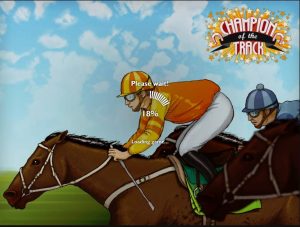
Published on 01/19/2024 14:08:45
https://unsplash.com/photos/a-stack-of-poker-chips-with-a-heart-on-top-1S-VJgvh_Oc
You're looking to understand the intricacies of online poker, right? It's not just about luck, it's about understanding the game's mechanics, making informed decisions, understanding probability, and comprehending the art of bluffing. It's a game of mental agility and you've got to develop your own strategies. Ready to delve into the strategic mindset in online poker? Let's dive in. Please remember, this is for educational purposes and understanding the game better, not for earning money or betting.
In the process of understanding online board games, such as online poker, it's crucial to comprehend the game's underlying mechanics. You've got to familiarize yourself with the virtual platform's ins and outs. This is where understanding the software utilization comes in. It's not just about knowing how to click 'fold', 'check', or 'raise'. You need to familiarize yourself with the software's features, such as saving game histories, taking notes on opponents, and setting up hotkeys for faster gameplay.
Another essential element is player profiling. The more you know about your opponents, the better your game strategy can be. You've got to remember, you're not playing against faceless avatars. Behind each screen is a real person with their own game style and habits. Some might be aggressive, others conservative. Some are risk-takers who bluff a lot, while others are more cautious and only play when they have a strong hand.
So, how do you profile players? One way is by observing their tendencies, their game patterns, how often they play, and how they react to different situations. This will give you valuable insights into their mindset and strategies. However, this isn't always enough. You also need to use the tools provided by your game software. Many platforms offer features that allow you to tag and categorize players, making it easier to track their behaviors and adapt your tactics accordingly.
Mastering online board games like poker isn't just about luck. It's about understanding the mechanics, utilizing the right software, and profiling your opponents. With this strategic mindset, you're well on your way to becoming an adept online game player. This is purely for the love of the game and not for the intention of earning money through betting or gambling.
Mastering the Art of Decision-making
Now, let's delve into the core of strategic thinking: mastering the art of decision-making, a skill that's as intricate as understanding the mechanics of any strategy-based activity and profiling your opponents. As you navigate the landscape of decision-making, remember that each action you take is a decision, and each decision impacts your overall strategy.
Understanding this, it's crucial to develop a systematic approach to decision-making that incorporates risk assessment and mitigates cognitive biases. This approach should include:
Delving deeper into the art of decision-making, let's explore the role of probability and statistics in poker to enhance your strategic gameplay. It's vital to understand that poker, like all card games, is a game of incomplete information but filled with statistical anomalies that can be analyzed to better understand the game's dynamics.
Statistical anomalies in poker aren't errors or mistakes; they're deviations from what's expected. They might seem random, but they follow patterns that you can identify and study. For example, a player's tendency to bluff more frequently than average is a statistical anomaly. By spotting these patterns, you can adapt your strategy and turn anomalies into learning experiences.
However, understanding statistics isn't enough if you misunderstand probability. You might think that if a card hasn't shown up for a while, it's 'due' to appear soon. This is a classic example of the gambler's fallacy, a common misconception that leads to faulty decision-making. In reality, poker is a game of independent events; past outcomes don't influence future ones.
To deepen your understanding of the game, you need to harmonize statistical analysis with a clear understanding of probability. Consider the chances of drawing a certain card, the probability of your opponents holding stronger hands, and the statistical likelihood of different outcomes. By integrating these elements into your decision-making process, you'll make more informed, strategic decisions that enhance your understanding of the game's complexities.
Mastering advanced techniques can significantly improve your strategic game, giving you an edge over opponents who might not be as strategically savvy. A well-executed strategy can be a game-changer, especially in games where physical cues are non-existent.
An essential part of strategy is understanding frequency and detection. Overdoing a strategy too often can make you predictable. Similarly, failing to detect an opponent's strategy can lead to substantial challenges. Let's delve into these two crucial aspects:
Advanced strategy isn't just about fooling your opponents; it's also about determining when they're trying to fool you. Remember, strategic thinking can turn a mediocre move into a winning one. But, it requires practice, keen observation skills, and a good understanding of strategy frequency and detection techniques. Your strategic mindset and mastery of these techniques will set you apart from the rest.
The Psychological Aspects of Strategic Games
In addition to your strategic prowess, the psychological dimension of your game plays a crucial role in online strategic games, influencing how you react to opponents' moves, handle pressures, and make critical decisions. Emotional control and mental resilience are two cornerstones of this psychological aspect.
Emotional control is about managing your reactions in both victory and defeat. You can't let a big win or a significant loss disrupt your game plan. You've got to keep your emotions in check, whether you're on a winning streak or facing a string of losses. This is easier said than done, but mastering this skill can give you an edge over less disciplined opponents. If you're looking for a platform to practice and enhance your emotional control in gaming, you might explore Pamestoixima Casino for a diverse gaming experience.
Mental resilience, on the other hand, is about bouncing back from setbacks. You're going to face challenging situations and formidable opponents. You'll occasionally make mistakes, but you can't let these factors dishearten you or shake your confidence. Your ability to remain composed, maintain your focus, and adapt your strategies as needed is crucial. It's a mental toughness that can help you weather the storms of the game and emerge stronger.
But how do you develop these abilities? It's a combination of practice, self-awareness, and a commitment to continual learning. You've got to recognize your emotional triggers and work to control them. You need to cultivate a mindset that views setbacks as opportunities for growth. It's a process, and it won't happen overnight. But with time and effort, you can develop the emotional control and mental resilience that are so vital to strategic gaming success.
Developing Your Own Strategy for Mental Challenges
Harnessing emotional control and mental resilience you've been cultivating, it's now time to focus on shaping your unique strategy for overcoming mental challenges. Your strategy should be as dynamic and adaptable as the challenges themselves. Remember, success isn't about luck; it's about calculated risks, a thorough understanding of the mechanics, and an informed analysis of your surroundings.
Your strategy should encompass two key elements: Strategy Evaluation and Situational Analysis.
To excel at overcoming mental challenges, you must be a strategist, a psychologist, and a risk manager all in one. So, keep refining your strategy, analyzing your surroundings, and adapting to the ever-changing dynamics of your environment. The road to mastery is a journey, not a destination. Embrace it, and let each step lead you forward.

Blueprint Gaming has developed a slot with 5 reels and 3 rows and 20 pay lines based on the original movie by Steven Spielberg called The Goonies slot

Rockabilly Wolves slot game is created by Microgaming, is quite fascinating in looks but seems to under perform in the eyes of many players

Play for FREE Champion Of The Track online casino slot game